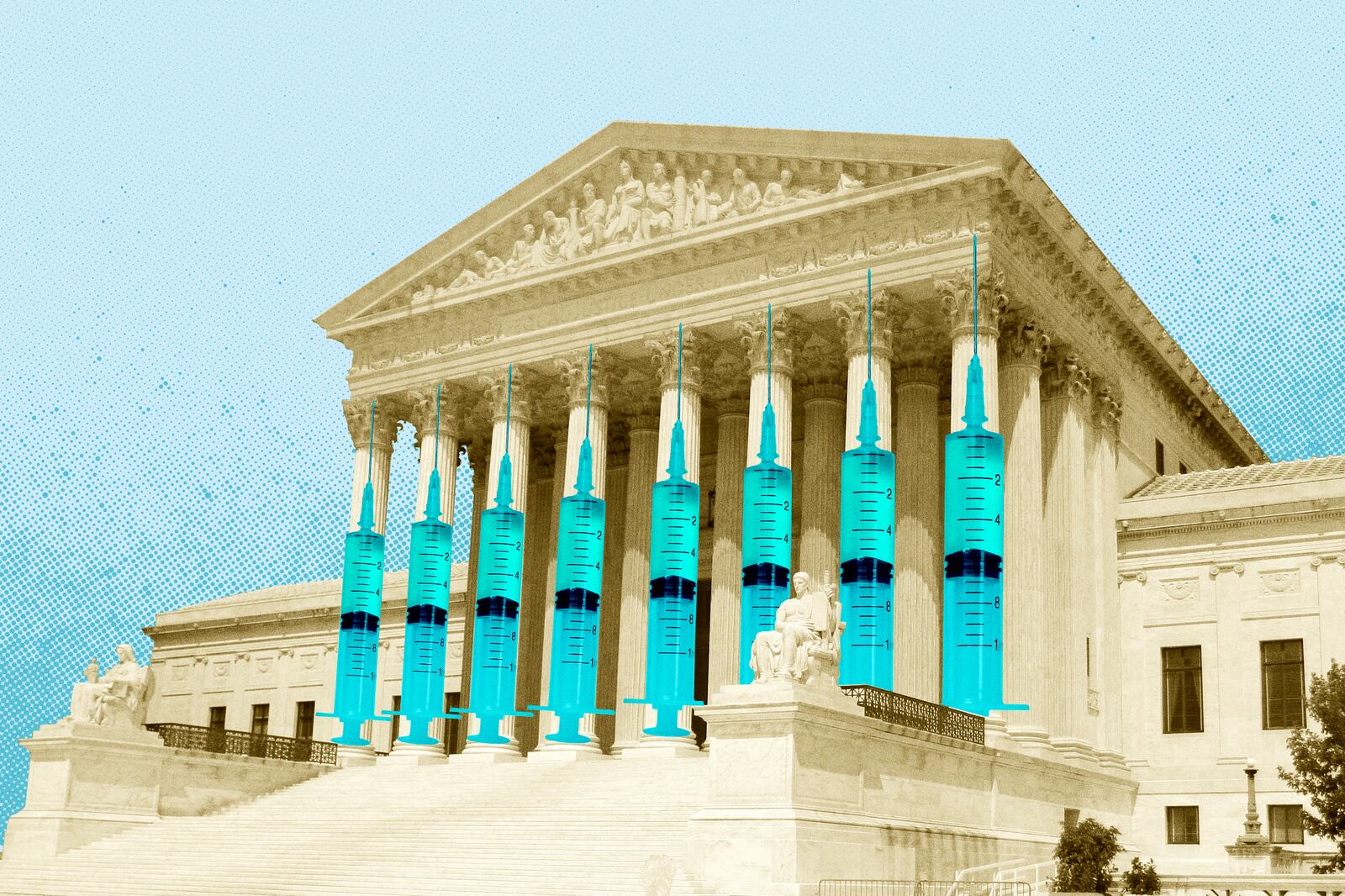As vaccine mandates become a reality, politicians, pastors and even the pope are speaking out against faith-based exemptions. But a recent Supreme Court ruling could make it difficult for the government to overlook religious objectors’ concerns.
The ruling, which came in June in a case brought by a Catholic foster care agency, said that, in many instances, officials must offer religious exemptions to laws that provide other types of accommodations.
Nearly all vaccine mandates fit that description, since the government typically exempts people who can’t get vaccinated for medical reasons, said Robin Fretwell Wilson, director of the Institute of Government and Public Affairs for the University of Illinois System.
“Vaccine laws are in the crosshairs,” she said.
In other words, as a result of the ruling, people of faith will likely have an easier time using the First Amendment to force changes to public vaccine mandates that lack religious exemptions. The Supreme Court’s decision does not apply to mandates put in place by private companies, Wilson said.
As it stands, most vaccine laws allow for medical, philosophical and religious exemptions, but that could change quickly if the COVID-19 pandemic persists. Already, in April, Connecticut lawmakers voted to stop offering faith-based exemptions to school vaccine rules; a group of religious objectors has since challenged that policy change in court.
Tension surrounding vaccine mandates will almost certainly increase in the days ahead, as will frustration with people who refuse vaccines despite having religious leaders who embrace the science, Wilson and other legal experts said.
“We saw a massive uptick in requests for legal help at the end of July,” said Jeremy Dys, special counsel for litigation and communications for First Liberty. Medical professionals, military members, college students and others “are concerned about vaccine requirements.”
Do religious exemptions pose a unique threat?
To be clear, the Supreme Court’s recent ruling on faith-based exemptions does not guarantee a victory for religious objectors when they challenge vaccine mandates in court. However, if judges determine the new legal precedent applies to the vaccine context, it will put government officials on the back foot, Wilson said.
“The government would have to explain why it’s not exempting you,” she said.
That task would be more challenging than you might assume, Wilson added. It would be hard for the government to definitively prove that religious exemptions are more harmful to public health than existing medical exemptions.
In the Connecticut case, supporters of the government’s ban on religious exemptions hope to overcome this challenge by comparing the demand for different types of exemptions.
In a brief filed Aug. 5, attorneys representing several faith-based organizations that support Connecticut’s position, including Americans United for Separation of Church and State, pointed out that, during the 2019-20 school year, the number of students who claimed religious exemptions was more than 10 times higher than the number who claimed medical exemptions.
“Permitting a religious exemption poses a much greater threat to the state’s interest in preventing the spread of the disease than does allowing a medical exemption. And that threat is magnified by the tendency of religious objectors to vaccination to cluster in particular communities,” the attorneys wrote.
Public views on exemption requests
Even before the COVID-19 pandemic arrived, nonmedical exemptions to vaccine mandates were under fire. Public health experts blamed government leniency for the return of previously eradicated illnesses, like the measles, to American communities.
“There’s a strong correlation between the increase in exemptions and measles outbreaks,” said Rich Lakin, immunization program manager in the Utah Department of Health, to the Deseret News in 2019.
Another factor driving anger toward vaccine skeptics is the fact that very few faith groups oppose vaccination. In many cases, those who claim a religious exemption are part of a denomination that doesn’t share their concerns, although many faith leaders do support making exemptions available.
Amid the pandemic, some pastors are working to address vaccine hesitancy by actively encouraging their parishioners to get the COVID-19 vaccine. The Archdiocese of New York went so far as to instruct priests to speak out against religious exemptions, according to America magazine.
“Pope Francis has made it very clear that it is morally acceptable to take any of the (COVID-19) vaccines and said we have the moral responsibility to get vaccinated,” a July 30 memo from the archdiocese said.
However, in the legal context, those kinds of statements don’t matter, since judges can’t weigh in on the legitimacy of vaccine skeptics’ religious concerns, Wilson said.
“The court doesn’t make someone prove why their religion doesn’t support vaccination,” she said.
Dys is hopeful that private employers and other nongovernmental leaders will adopt a similar approach to requests for religious exemptions if they impose a vaccine mandate in the coming months.
“They should show that they value and respect their employee’s right to believe what they are conscience-bound to believe,” he said.

